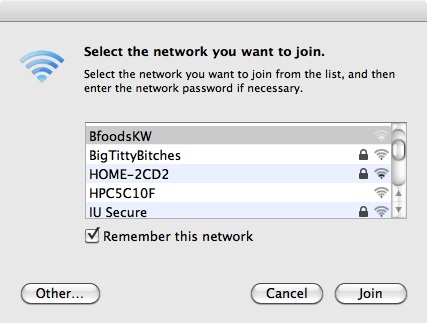 In institutional economics, there are four main kinds of resource, classified by whether they are limited (yes or no) and whether you can keep others from using them (yes or no). Now everyone who uses these categories knows that they are fuzzy, and full of exceptions. They can vary in degree, by context, and in time. WiFi gives us a beautiful example of how technology (and defaults) can change the nature of a resource. These days, early 2013, wireless routers come password-protected out of the box, and they come initialized with unique hard-to-crack passwords. That wasn’t the case in the early 2000s, when routers either came unlocked by default or locked with an easy-to-find default password. In those days, wifi was a common-pool resource in that it was limited (only so much bandwidth) and you couldn’t keep others out of it by default. You needed special knowledge to create a proper password and turn your wireless into the private good (still limited, but excludable) that you get out of the box today.
In institutional economics, there are four main kinds of resource, classified by whether they are limited (yes or no) and whether you can keep others from using them (yes or no). Now everyone who uses these categories knows that they are fuzzy, and full of exceptions. They can vary in degree, by context, and in time. WiFi gives us a beautiful example of how technology (and defaults) can change the nature of a resource. These days, early 2013, wireless routers come password-protected out of the box, and they come initialized with unique hard-to-crack passwords. That wasn’t the case in the early 2000s, when routers either came unlocked by default or locked with an easy-to-find default password. In those days, wifi was a common-pool resource in that it was limited (only so much bandwidth) and you couldn’t keep others out of it by default. You needed special knowledge to create a proper password and turn your wireless into the private good (still limited, but excludable) that you get out of the box today.
The point about technology has been made. Governing the Commons contains a history of roundups in the Western US, showing how the invention of barbed wire turned the large cattle herds from a managed common-pool resource into a private (excludable) good. The WiFi example adds the influence of defaults, which makes it a bit more interesting, since we see a case in which the flip of a switch can change the nature of a good, and we see how, given the choice, society has chosen private property over common property over the past ten years.
But there is another facet to the WiFi resource. Another feature that comes default is the broadcast SSID, or the name of your wifi. These are often informative, but they can also be impressively inappropriate. Trying to steal wireless on the road, you can be driving around a beautiful peaceful thoroughly-family-looking neighborhood and stumble upon all kinds of sinister things in the air.
What kind of resource is the NSFW SSID? Well, lets be square and say that its a bad rather than a good. Its non-subtractable because unlike bandwidth my reading it doesn’t interfere with your reading it. Its common. By all that, NSFW SSID’s are a public bad, pollution. And what is interesting about all this is that a resource can be anything, even the name of an interesting resource can be an interesting resource, one that gets managed by norms and rules, and one that channels all the complexity of human society.


